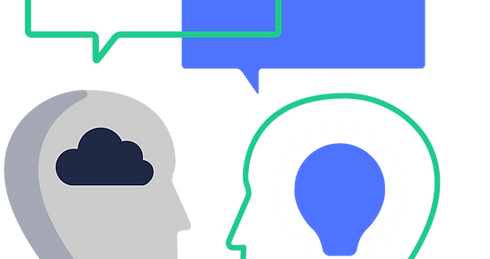
A Brief Introduction To Talking Therapy
How common is it for people to undertake talking therapy?
Very common! About one in every four people in the UK has ever undertaken talking therapy & the proportion is increasing every year. This equates to over 16 million UK residents.
How effective is talking therapy?
Research has shown many types of talking therapy are highly effective. There is good evidence therapy is beneficial for many conditions including: depression, anxiety including post traumatic stress (PTSD), other trauma spectrum disorders & phobias.
Therapy is most effective if we talk to someone who is a good match for us; this enables a strong, positive working (therapeutic) relationship to be formed.
What Is Talking Therapy?
In talking therapy we discuss our difficulties with a trained professional in a way which aims to bring about positive change. Effective therapy provides a safe and confidential place to open up about problems & discuss our thoughts, feelings & behaviours.
The aim of therapy is to help us understand ourselves & others more fully & enhance our ability to cope with whatever life throws at us. Therapists do not tend to give advice or share their opinions, but try to assist us in living more skilfully &/or improving our ability to manage difficulties.
Who Conducts Talking Therapy?
In the UK, as in many other countries, a number of different professionals may deliver therapy. These include: psychologists, psychotherapists, counsellors, mental health nurses, social workers, occupational therapists & psychiatrists.
Therapy may take place in the NHS, privately or within the third sector (e.g. charities). It can be undertaken one-to-one or with other people, either who we know (e.g. partners or other family members) or those who are experiencing similar issues to ourselves. Therapy traditionally takes place in person, but (especially recently due to COVID-19) can be undertaken remotely using Zoom/Skype/Google Meet etc.
What types of therapy are there?
There are many different types of therapy, some of which are briefly described below.
Cognitive behaviour (CBT) & 3rd Wave
CBT
CBT explores our thoughts, feelings and behaviours & helps us engage healthier more adaptive thinking patterns.
Some therapies have developed from CBT including:
Behavioural Activation (BA)
This is recommended for depression & is a very practical therapy. It aims to enhances our motivation to make small steps, to improve our lives. It also teaches us problem-solving skills, so that we are better able to resolve issues impacting our mood. It is time-limited & typically involves 16 to 20 sessions.
Dialectic Behavioural (DBT)
This was developed to help with self-harm, suicidal feelings & substance abuse. It develops our skills to tolerate distress, enhance emotional regulation & skilfully engage with others. It usually takes 6 months to complete.
Acceptance & Commitment (ACT)
This encourages us to notice and accept our thoughts, feelings & memories. It aims to promote greater flexibility in our thinking & help us move towards a life we will value.
Compassion Focused (CFT)
This is helpful if we feel high levels of shame & self-criticism, as it teaches us to be more compassionate to ourselves & others.
Psychodynamic/Psychoanalytic
These therapies explore our early life experiences. They help us identify currently unhelpful behaviours stemming from them, of which we may have limited awareness. Therapy is traditionally long-term, although recently time-limited forms have been developed.
Interpersonal (IPT)
This is a brief, structured therapy with pschodynamic origins, recommended for depression. It helps us explore & improve our interpersonal relationships & is designed to be undertaken in 12-16 sessions.
Humanistic
This helps us improve awareness of who we are & what is important to us thus enabling us to realise our potential.
Cognitive Analytic Therapy (CAT)
CAT is a time-limited (4-24 sessions, typically 16) therapy, tailored to individual circumstances. Our therapist collaboratively explores with us how we think, feel & act as a consequence of our relationships and previous experiences. It helps us identify unhelpful patterns of relating & swap them for more useful ones.
Eye Movement Desensitisation and Reprocessing (EMDR) & Trauma-Focused CBT (TF-CBT)
These two therapies are recommended to treat PTSD & can form part of complex trauma treatment. They encourage us to discuss in detail (TF-CBT) or visualise (EMDR) distressing memories in a way which enables our brains to process them properly, thereby reducing the distress & disruption they cause us. EMDR combines visualisation with bilateral (side to side) eye movements.
This is a small number of the many types of therapy available.
Many therapists offer several different types & recommend which might be most beneficial in our circumstances. Other therapists use an integrative approach, where techniques from different schools of therapy are combined.
